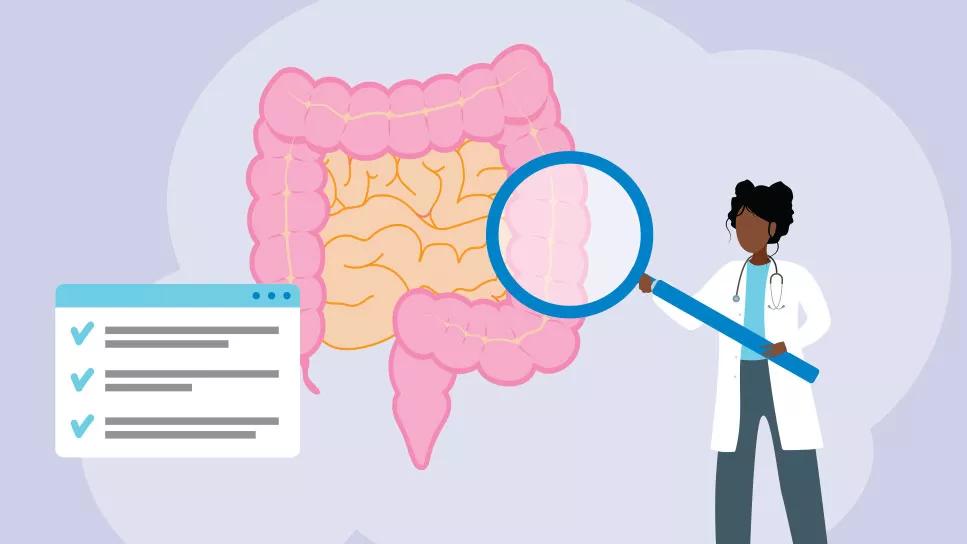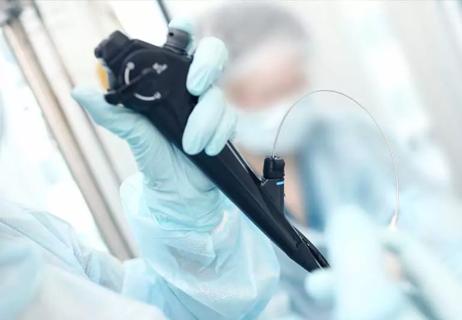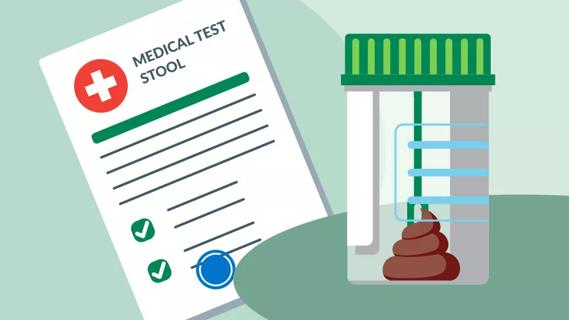If you’re at average risk, it’s recommended that you get your first colonoscopy at age 45

According to the American Cancer Society, colorectal cancer is the third most common cancer in the U.S.
Advertisement
Cleveland Clinic is a non-profit academic medical center. Advertising on our site helps support our mission. We do not endorse non-Cleveland Clinic products or services. Policy
While the number of overall colorectal cancer-related deaths has actually been dropping for several decades thanks to more people getting regular colon cancer screenings and advances in treatments, colorectal cancer for people under 50 has been increasing. Why? Researchers aren’t sure and are investigating.
So, when should you get a colonoscopy?
Since 2021, the U.S. Preventive Services Task Force, an independent, volunteer panel of national experts in prevention and evidence-based medicine, recommends that colorectal cancer screenings start at age 45, as compared to the prior recommendation of age 50.
Colorectal surgeon, David Liska, MD, believes screening people earlier is very encouraging news — especially when it comes to saving lives.
“Screening, especially with a colonoscopy, doesn’t only detect cancer but it can also help prevent cancer by allowing us to find polyps so we can remove them before they have a chance to turn into cancer,” he says.
Dr. Liska gives us an update on the colonoscopy age, colorectal cancer risk factors to consider and what other screening options are available.
What exactly is a colonoscopy?
During the procedure, healthcare providers use a flexible camera to look inside your colon and rectum.
Advertisement
And for most people, the colon cancer screening age starts at 45. Dr. Liska says the current recommendation is mainly for average-risk individuals, meaning those who don’t have a family history of colorectal cancer or symptoms.
With colorectal cancer, there are a number of risk factors. Some can be reduced while others are beyond your control.
Risk factors that you can manage include:
Dr. Liska says to watch out for rectal bleeding, changes in bowel movements (meaning going from having frequent ones to being constipated or having diarrhea), abdominal pain and weight loss. If you’re experiencing these symptoms, contact a healthcare provider immediately for a diagnosis.
“One of the alarming things that we have seen with patients under 50 is that they get diagnosed with colorectal cancer after having symptoms for quite some time. And sometimes, when the symptoms are brought up to their physicians, they’re often attributed to hemorrhoids or other benign conditions,” shares Dr. Liska.
“We really need to educate the public and physicians so they know that colorectal cancer is now more common among younger people and if anyone has concerning symptoms, regardless of the age, we should recommend further evaluation, often through a colonoscopy.”
So, what makes you high risk? Risk factors that are beyond your control include:
If you have a strong family history of colorectal cancer, inflammatory bowel disease or a hereditary cancer syndrome, you’d be considered higher risk and might need to be screened before the age of 45.
It’s important to note that Black and African American people tend to have the highest colorectal cancer incidence and mortality rates of all racial groups in the U.S. Again, with the newer recommendations, Dr. Liska hopes this will change as well.
“The incidence of colorectal cancer has been higher in Black Americans, especially men," Dr. Liska says. "This is also a population that tends not to get as much screening as is recommended."
“So, we’re hoping these newer guidelines will also significantly increase screening, especially among Black Americans starting at age 45, because they are at a higher risk. Unfortunately, with this population, we have seen colorectal cancer being diagnosed at a later stage when it is harder to cure.”
Advertisement
The most common method of screening for colorectal cancer in the U.S. is a colonoscopy. If you’ve never had a colonoscopy before, don’t just assume the worst and ignore your healthcare provider’s screening recommendation. If you feel a little uncertain or uneasy about the process or are unsure of when to get a colonoscopy, talk to a provider. They can help put you at ease and answer any questions you have. But not doing anything is never the right answer.
And there are other colorectal cancer screening options such as:
“If somebody is afraid or embarrassed about having a colonoscopy, it’s not the only test to do. There are a few tests that can be done at home, and if they aren’t normal, they would then trigger a colonoscopy,” explains Dr. Liska.
“But everyone should realize that talking about symptoms is not something to be embarrassed about. On the other hand, if you’re afraid of a colonoscopy, talk to your physician about it. They can talk you through it or find a different option for you. Ultimately, when it comes to your colorectal health, keep this in mind: The best screening test is the one that gets done.”
Advertisement
Learn more about our editorial process.
Advertisement

Focus on exercise, eating healthy and getting regular screenings to help lower your risk

Chronic inflammation from flare-ups can damage the lining of your intestinal wall, making your colon more vulnerable to cancer

Colonoscopies and sigmoidoscopies are types of endoscopies, procedures that look at the health of your large intestine

A steady increase in cases in those younger than 50 started decades ago

It’s a slow-moving process that offers an opportunity for early detection and treatment

At-home screening options can be good detection tools, but a colonoscopy remains the gold standard

Knowing your family history and getting a genetic test can help detect colorectal cancer earlier

Get lots of fiber, cut back on red meat and limit your alcohol intake

Wearing a scarf, adjusting your outdoor activities and following your asthma treatment plan can help limit breathing problems

Your diet in the weeks, days and hours ahead of your race can power you to the finish line

When someone guilt trips you, they’re using emotionally manipulative behavior to try to get you to act a certain way